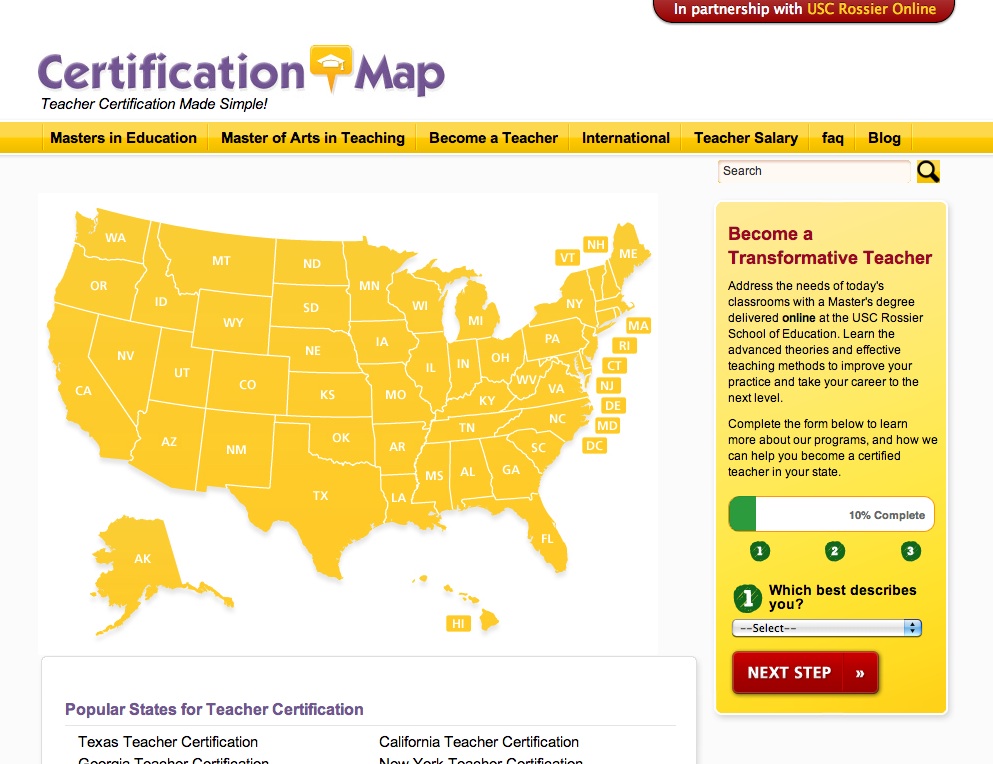
Teach.com is a comprehensive educational web resource dedicated to discovering, discussing and encouraging great teaching around the world. Like certificationmap.com, Teach.com also provides a map outlining the steps to become a teacher, including information on teacher salaries, teacher preparation and certification requirements for all 50 states as well as information on teaching abroad. The site also profiles great teachers from around the country and highlights the need for more great teachers.
Certification Map is a comprehensive resource for teacher certification information. It provides state specific information on how to become a teacher, teacher salaries, teaching credentials, teacher certification tests, alternative teacher certification, and teaching certificate reciprocity. Their aim is to provide all the information necessary to become a teacher no matter where you live.











